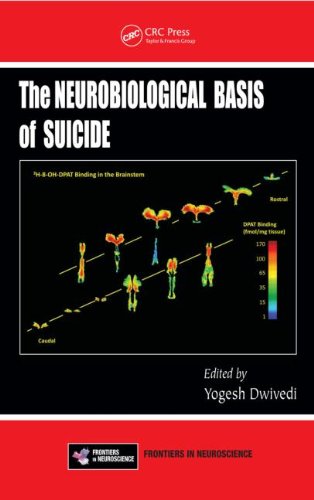
The Neurobiological Basis of Suicide
by Yogesh Dwivedi
Publisher: CRC Press 2012
ISBN/ASIN: 143983881X
ISBN-13: 9781439838815
Number of pages: 482
Description:
With recent studies using genetic, epigenetic, and other molecular and neurochemical approaches, a new era has begun in understanding the pathophysiology of suicide. Emerging evidence suggests that neurobiological factors are not only critical in providing potential risk factors but also provide a promising approach to develop more effective treatment and prevention strategies.
Download or read it online for free here:
Read online
(online html)
Similar books
 Methods for Neural Ensemble Recordings
Methods for Neural Ensemble Recordingsby Miguel AL Nicolelis - CRC Press
Neural ensemble recording grew into a well-respected and highly data-lucrative science. New experimental paradigms and the establishment of direct real-time brain-machine interfaces hold promise for new-generation prosthetic devices.
(9046 views)
 The Anatomy of the Brain
The Anatomy of the Brainby Richard H. Whitehead - F. A. Davis company
The author's aim was to furnish medical students with a clear, accurate, and concise account of the anatomy of the brain, to be used as a guide. He decided to omit minor details, and to exclude subjects which are still matters of controversy.
(8952 views)
 Glioblastoma
Glioblastomaby Steven De Vleeschouwer (ed.) - Codon Publications
Glioblastoma is the commonest and the most lethal brain tumor. In this book 71 experts from around the globe come together to give a timely, unique and exhaustive compilation of preclinical and clinical knowledge and concepts of glioblastoma.
(6193 views)
 Critical Care in Neurology
Critical Care in Neurologyby Kitchener, Hashem, Wahba, Khalaf, Zarif, Mansoor - Flying Publisher
The goal of neurointensive care is to treat and prevent primary and secondary brain injury. This book addresses the day-to-day management of patients in neurointensive care units and the clinical approach to common neurocritical conditions.
(10397 views)